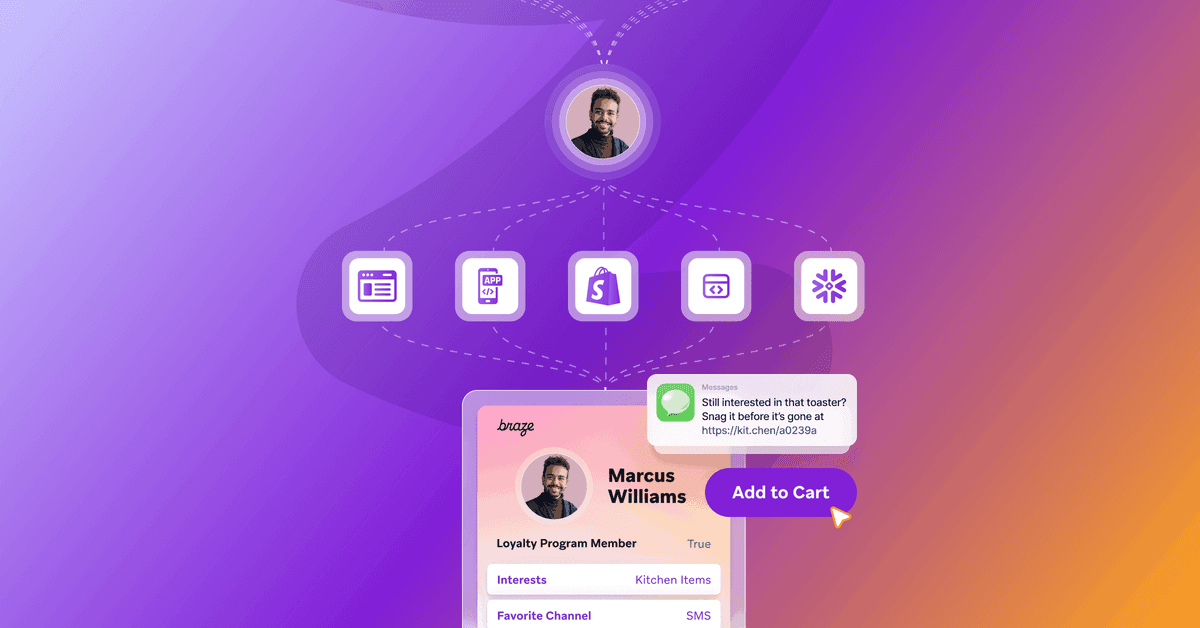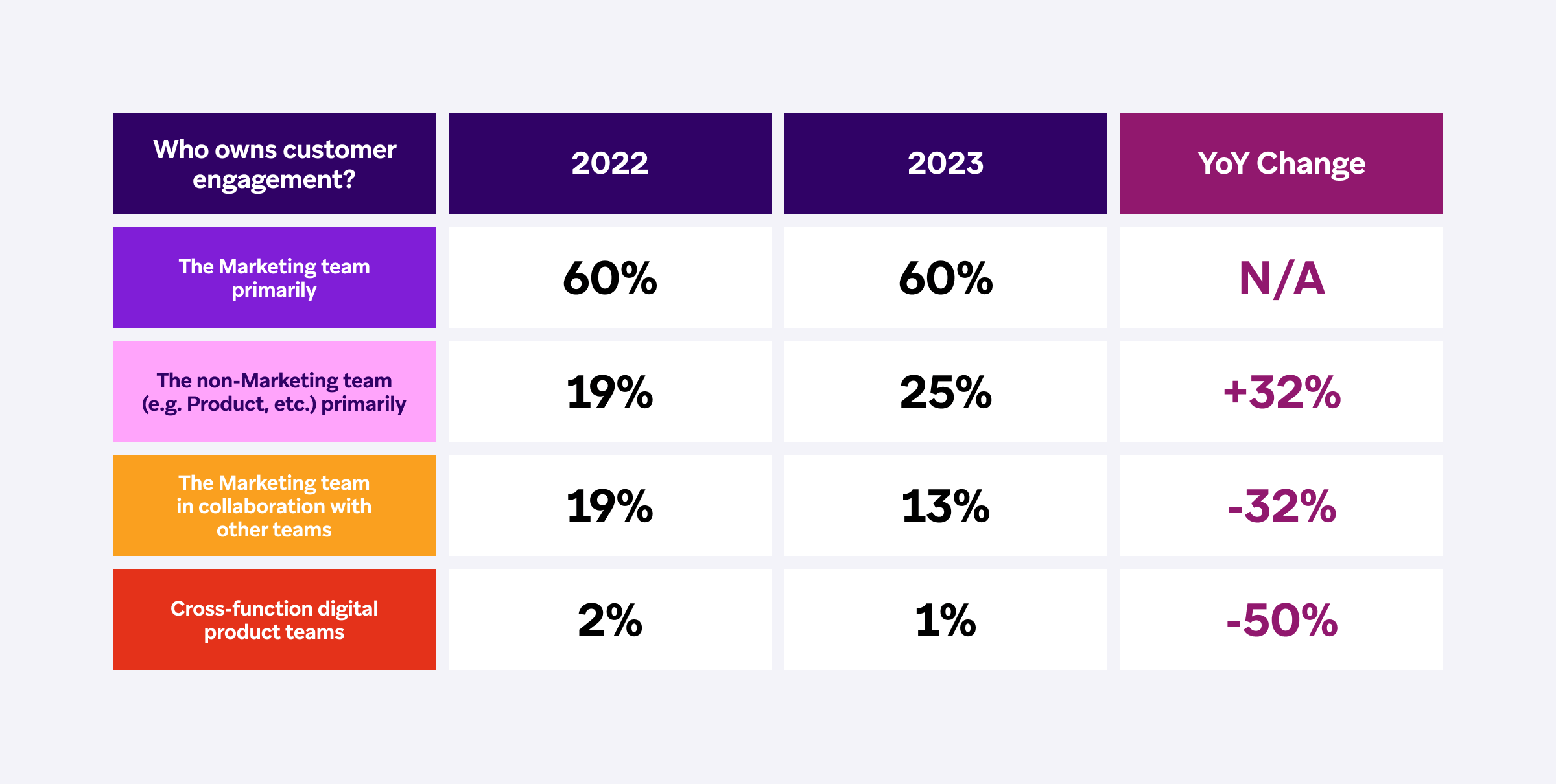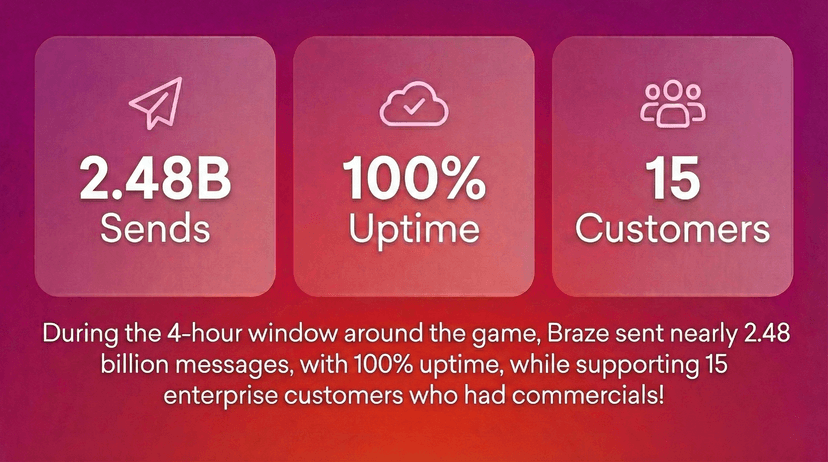The Full Potential of Data Is More Promising Than Ever
Published on June 11, 2024/Last edited on June 11, 2024/5 min read


Team Braze
Data agility is a game-changer for marketers. When brands can access, process, and take action on any of their data when and where they need it, that’s data agility—and it can open up major opportunities. By allowing marketers to leverage the information they have in the moments that matter, it’s possible to seamlessly surface the right outreach for each user in their customer journeys; that, in turn, can help them guide next-best actions and experiences that can drive stronger engagement, conversions, and lifetime value.
It follows that research from Braze, published in the 2024 Customer Engagement Review, found that brands that embrace data agility have a competitive advantage—they’re top-performing brands. Let’s take a look at those findings and explore why many marketers still lack a clear view of their customers, the steps some brands are taking to improve their customer insights, and what top-performing brands are doing to accelerate their data agility and get ahead of the curve.
Why many marketers aren’t yet able to leverage the full potential of their data
1. They’re not focused on the right data
For years, marketers focused on driving upstream metrics such as opens and clicks. But with time, savvy brands have realized this isn’t enough to move the needle. Still, 29% of surveyed marketing executives say their organizations primarily use message engagement rates to measure customer engagement success.
At the same time, we found that only a small share of marketers are paying attention to and acting on larger measures of customer satisfaction, engagement, and experience:
- Only 24% are mapping customer behavior and sentiment
- Even fewer (6%) apply customer insights to their product and brand approach
The good news is, there are some signs of progress. More brands are focusing their customer engagement strategies on providing concrete value:
- 54% of our survey participants report they aim to improve both upstream and downstream (e.g. retention, monetization) metrics
- Only 22% are focusing their strategies solely on boosting upstream metrics
Additionally, brands could be better acting on the data they have. While most marketers (50%) say they’re exporting performance data into business intelligence platforms to generate advanced analytics, only 6% say they apply their customer and engagement insights to their product and brand and creative strategy.
2. They’re not democratizing data and collaborating on initiatives across the organization
Strategic brands recognize the importance of having a data culture that eliminates silos and ensures everyone has access to the information that will support their work.
However, simply sharing data isn't enough on its own; it also needs to be part of an ongoing collaborative process to be effective. But while a focus on ongoing collaboration has been an aspiration of many brands, our survey found that few achieve it: Only 1% of respondents said that customer engagement was owned at their company by true cross-functional teams.
Who owns customer engagement—and how has it shifted?
Marketing ownership of customer engagement has remained stable YoY, but the percentage of brands saying that their efforts are overseen primarily by non-Marketing teams has risen significantly while those reporting Marketing-led collaborative approaches has declined.

Our survey discovered that customer engagement is owned primarily by marketing teams (60%) or in collaboration between marketers and technical teams (13%). However, a surprising percentage of respondent brands see customer engagement executed primarily by non-marketers (25%), highlighting the potential organizational silos companies have to overcome to drive impactful customer experiences.
However, our survey also found some encouraging signs when it comes to cross-team communication: 51% of respondents reported syncing with other teams touching customer engagement at least every two weeks, suggesting these silos aren't impenetrable.
That said, there's room for improvement—only 3% continuously collaborate across teams on their customer engagement programs, creating potential complications in getting and staying aligned and raising the risk of serving up broken experiences to users.
What Brands That Prioritize Data Agility Are Doing Differently
To fully leverage customer insights for better product and brand experiences, brands are investing in the right tech stacks with real-time integrations and streaming data.
Top-performing brands with advanced data agility have gained a competitive advantage.
Compared to lower-performers, data-agile customer engagement leaders are:
- 11% more likely to have a direct connection between their data warehouses and customer engagement platforms
- 12% more likely to generate custom reports with engagement data
- 16% more likely to create sophisticated segments leveraging multiple properties
- 36% more likely to import non-customer data into their customer messaging tools to power personalization
- 82% more likely to involve multiple teams and sync weekly on customer engagement
These top-performing brands also see stronger overall results, including 59% higher sessions per user and 30% higher 30-day retention.
Discover the Complete State of Customer Engagement in 2024
The takeaways we’ve shared here are just the beginning. Check out the complete 2024 Global Customer Engagement Review to find out what top brands like Wealthsimple, Sonder, Second Dinner, Joe and the Juice, and e.l.f. Cosmetics are doing to make the most of their data.
About the Study
These findings are part of our broader fourth-annual Global Customer Engagement Review, which draws on the following sources:
- Market research featuring 1,900 VP+ marketing decision-makers across 14 global countries in three global regions.
- An analysis of Braze proprietary data, including over 9 billion global users and nearly 1,000 Braze customers in 50+ countries, via our leading customer engagement platform.
- Case studies from best-in-class brands in five industries across three regions.
Related Tags
Be Absolutely Engaging.™
Sign up for regular updates from Braze.
Related Content
 Article16 min read
Article16 min readChoosing the best AI decisioning platforms for 2026 (across industries)
February 12, 2026 Article3 min read
Article3 min read2.4+ billion sends, zero fumbles: How Braze supports leading brands during the big game
February 09, 2026 Article4 min read
Article4 min readBeyond Predictions: Why Your Personalization Strategy Needs an AI Decisioning Agent
February 09, 2026